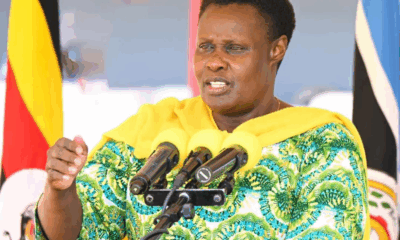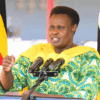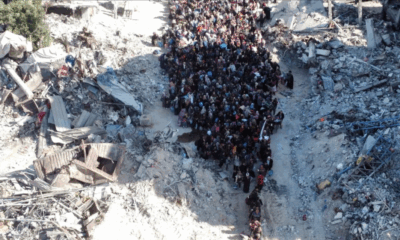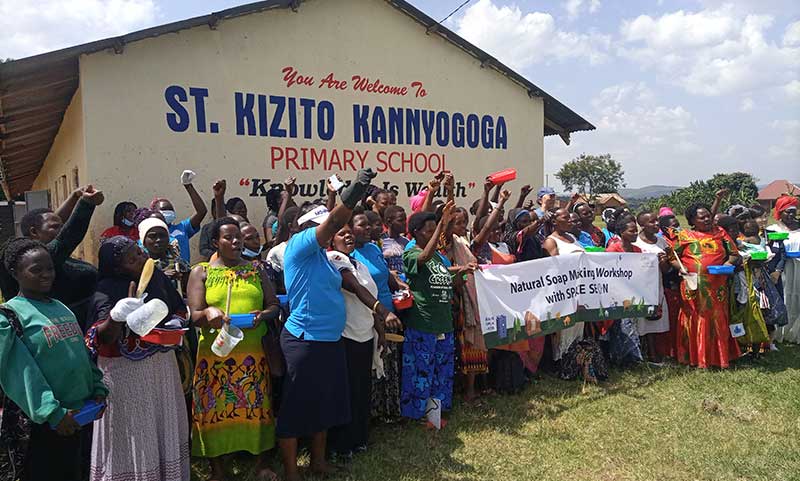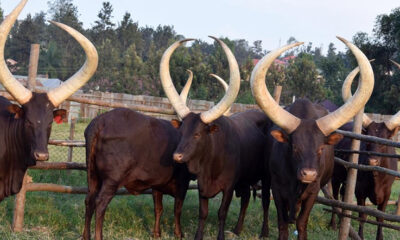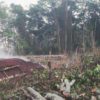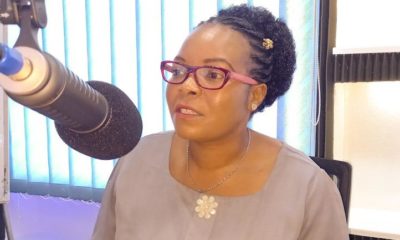Editor
Korean model for rural transformation gains ground in Uganda through social entrepreneurship
Participants jubilate the completion of a soap-making training at Kanyogoga primary school in Mityana district
The women of Bukooba parish in Ssekanyonyi Sub County, Mityana district waited with great anticipation to participate in a two-hours training about soap making.
The training started in earnest, thanks to prior preparation by a team of Koreans who had jetted into the country to transfer their skills in different crafts with the view to improving the lives of rural poor, mostly women and youth.
The overwhelming enthusiasm that was demonstrated by the participants was evident from the fact that some of them had to be removed from the training room by the organisers not because they expected gifts, but because they were hungry for knowledge about a craft they considered critical to their lives.
The current scarcity of soap in Uganda which pushed up prices of the commodity across the country triggered a nation-wide outcry, was cited by participants as a key motivation for wanting to learn the skill of soap-making.
The training was organized by the Uganda Federation of MG Community Credit Cooperative (UFCC), an umbrella body that brings together about 18 financial cooperatives in Mpigi and Mityana districts.
MG stands for Maul Geumgo, which is Korean for ‘village bank’. The UFCC member cooperatives are inspired and supported by the Korean Federation of Community Credit Cooperatives (KFCCC), which owns majority stake in the largest bank in South Korea.
Held under the banner of ‘Natural Soap Making with Spaceseon’, the training exposed the women members of Bukooba MG to the craft of soap-making using nature-based raw materials.
Ms. Soo Om, a Korean expert in soap making and the founder of Spaceseon, an organisation that promotes environmental sustainability, spoke with impeccable calm about the need to embrace natural raw materials in producing soap – perhaps one of the most important needs in people’s lives.
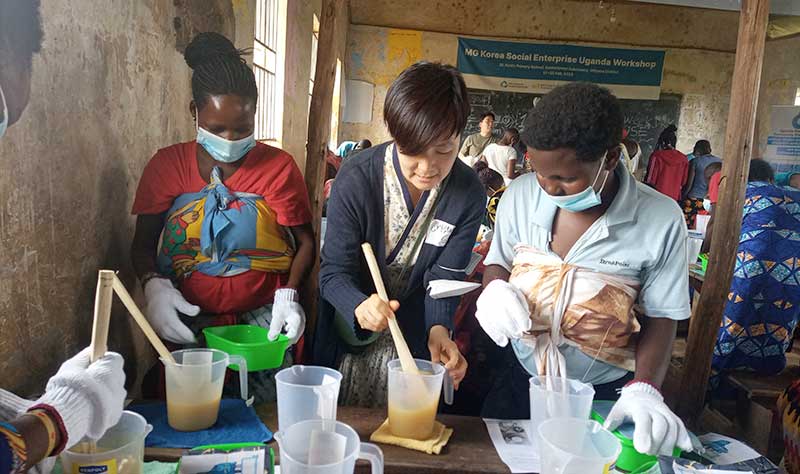
Ms. Soo Om passing on her soap making skills to young mothers at Kanyogoga Primary school in Mityana district of Uganda
Through Spaceseon, Ms. Soo revealed that natural-based materials for soap-making such as cooking oil have proved to be safer for the environment and humans compared with petroleum or chemical-based oils.
For UFCC leaders, empowering rural women with such critical skills, was not only an environmentally sound decision, it promotes their agenda of economic transformation through social enterprises.
As Mr. Andrew Kyepa, the Chief Executive Officer of UFCC emphasised, their primary objective is to promote social enterprises through awareness creation for various income-saving options as well as increasing availability of affordable financial services for rural communities.
“Through trainings such as this one, we’re focusing at empowering people with skills which can enable them not only to improve their lives but can also help them generate income that can sustain them and also be able to save part of it in their local MG to be accessed as a loan,” Mr. Kyepa added.
“You cannot promote savings without social enterprises especially in farming communities,”
Mr. Kyepa observed that with such entrepreneurial skills, members of the MGs can save money on essential items and can also start businesses that boost their incomes. Also through MGs as savings and lending vehicles, he added, the pooled funds can then be accessed by other members in the form of loans.
Besides empowering the women with job-creation skills, the UFCC team, with the help of Korean volunteers had the previous day held a similar workshop targeting young people.
The training for the youngsters focused on creating new items from waste materials such as sugarcane waste.
As Mr. Kyepa explained, the training for kids was meant to show them that they can make entirely new products out of waste. It helps to build a sense of awareness for saving but also an early stage consciousness for environmental protection.
“The artwork is helping to teach young children that they can use waste material to produce something of value. It is one way of teaching young children to save, but it is also another way of teaching them to protect their environment,” said Mr. Kyepa.
This model of using financial cooperatives and a ground-up financial mobilization strategy has proved to be a major success in Korea not only by transforming rural communities, but by also by strengthening the country’s financial sector.
The power of financial community cooperatives groups, coupled with vibrant social enterprises is believed to be one of the sources of Korea’s rapid and inclusive economic development stories of the 20th century.
For example, the country’s umbrella body for MGs – the KFCC – is not only the biggest sharehold in Korea’s largest bank, it has become a dominant player in the investment arena by injecting money into technology start-ups and selling them off to make money for its members.
As witnessed by Mr. Kyepa and colleagues during a recent visit to Korea, the team witnessed a vibrant network of local enterprises including citrus production that benefit from locally available funds saved by members of MGs.
According to Mr. Kyepa, with support from organisations such as the Korea Federation of Community Cooperatives (KFCC) and the Korea Agency for International Cooperation (KOICA) they want to replicate the successful model in Uganda.
“With assistance from KFCC, the local MGs are given a safe to keep the members’ savings, books for record keeping and support for digital transformation,” adds Mr. Kyepa.
For members of Bukooba MG, the training in soap making was a timely exercise.
Mr. Dorah Nakazibwe, the Bukooba MG group’s vice chairperson who also doubles as the treasurer of UFCC, expressed gratitude to KFCC for prioritising women because, as she argued, many rural households are headed by women.
“As women, we’re most affected by increases in prices of essential commodities. With such skills, we’re confident that our members can save a bit of money, and others can go a step further to start businesses,” said Mr. Nakazibwe.
The beneficiaries of the training in soap making were equally elated by the newly acquired knowledge.
Mr. Felista, from Luteete village, expressed relief and excitement that with such skills, she can start a business in soap.
Comments





